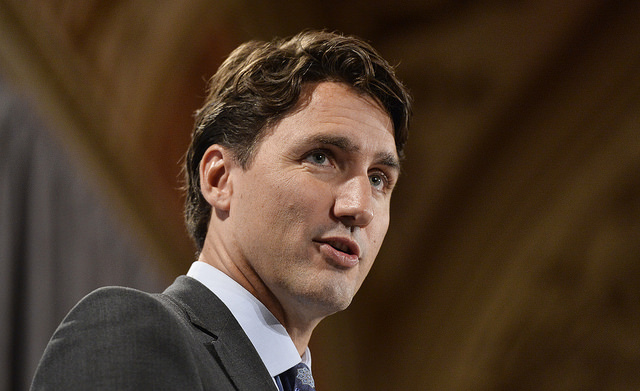rabble is expanding our Parliamentary Bureau and we need your help! Support us on Patreon today!
Prime Minister Justin Trudeau deserves full marks for his reaction to the final report of the Truth and Reconciliation Commission (TRC) on residential schools.
Indigenous Canadians can now hope that the new federal government will show them genuine respect.
The previous prime minister apologized for the residential schools. But he then adopted a negative and confrontational approach in dealings with Canada’s first peoples.
The tone has now definitely changed.
Having said that, we cannot forget that the challenges of Indigenous Canada do not begin and end with the residential schools and their horrific consequences.
It will, of course, be important to implement the Commission’s calls to action. Prime Minister Trudeau has solemnly promised he will implement each and every one of those calls.
And they go well beyond the residential school system itself. They deal with broader matters such as funding for First Nations education, Indigenous child welfare, health services and the justice system.
It is notable, though, that on economic matters the TRC has little to say, aside from calling for the full agreement of Indigenous communities before allowing resource development on their lands.
Indigenous rights to natural resources and economic power
But the issues of economic power and economic rights are at the heart of Canada’s relationship with its Indigenous peoples.
At the height of the Idle No More movement, a little more than two years ago, when then Prime Minister Stephen Harper allowed himself to be drawn into a Crown-First Nations summit, there was much talk about Indigenous ownership and control of natural resources.
Harper dismissed all that.
Natural resources, under our constitution, belong to the provinces, the Conservative leader said. He told Indigenous leaders: If you think you have any right to those resources, don’t bother me, go talk to the provinces.
Good luck with that.
The fact is that for decades now the control of natural resources and the tools for economic self-sufficiency have been the twin elephants in the room whenever we talk about Indigenous Canada.
Apologies and tears are fine, but they are not the final answer.
As a country, if we are serious about genuinely improving the living conditions and respecting the rights of Indigenous Canadians we will have to take economic development seriously.
Nearly 20 years ago, another Commission whose work resulted in a massive report made that point very well.
That was the Royal Commission on Aboriginal Peoples, headed by former Assembly of First Nations National Chief George Erasmus and Quebec Judge René Dussault.
The Royal Commission’s detailed recommendations still bear reading today.
Policy makers and politicians of all stripes have systematically ignored what Erasmus and Dussault had to say almost from the moment they published their findings in 1996.
Here, just to cite one small example, is part of what the Royal Commission said on the question of economic development. It is as true today as it was in 1996:
“As things stand, Aboriginal communities are subject to a changing array of economic development programs, most of them managed from distant government offices. They must tailor their ideas for stimulating the economy to program criteria set by external authorities.
We call on federal and provincial governments to enter into long-term development agreements with Aboriginal nations to provide support, advice and stable funding for economic development. Aboriginal nations would design programs, make investment decisions, and be accountable to their people for managing these resources.
Regaining control of economic matters without the human resources and capacity to manage them would spell trouble for Aboriginal nations. They must be helped to develop the personnel and the regional and national institutions they need to invest in and manage businesses in specific sectors — resource extraction industries, agriculture, communications, tourism, and so on.”
—
To find out how you can work toward reconciliation in 2016, click here to follow rabble.ca’s new series: reconciliation resolution.



